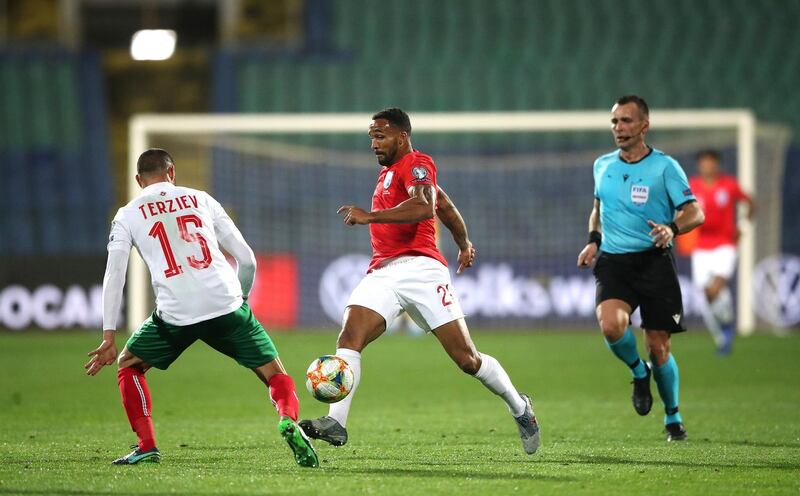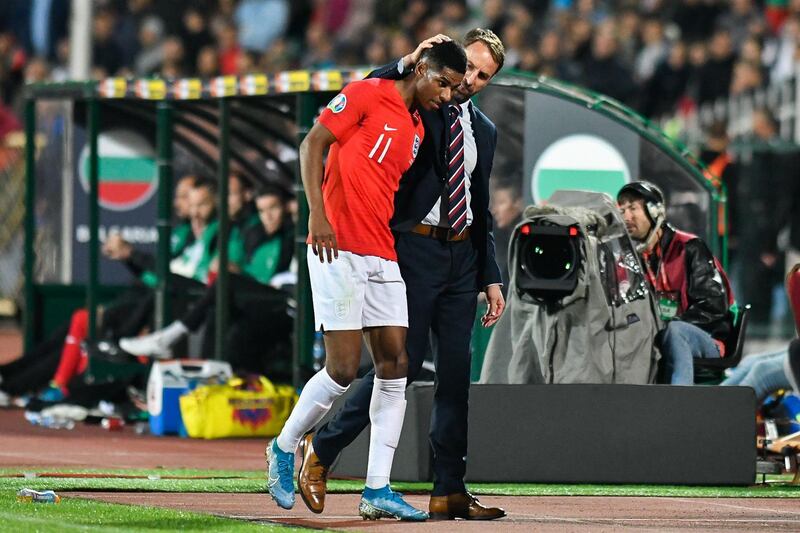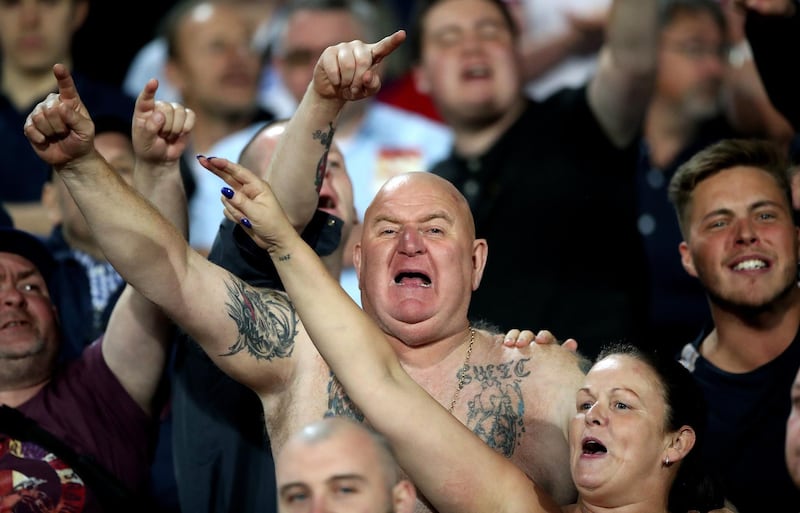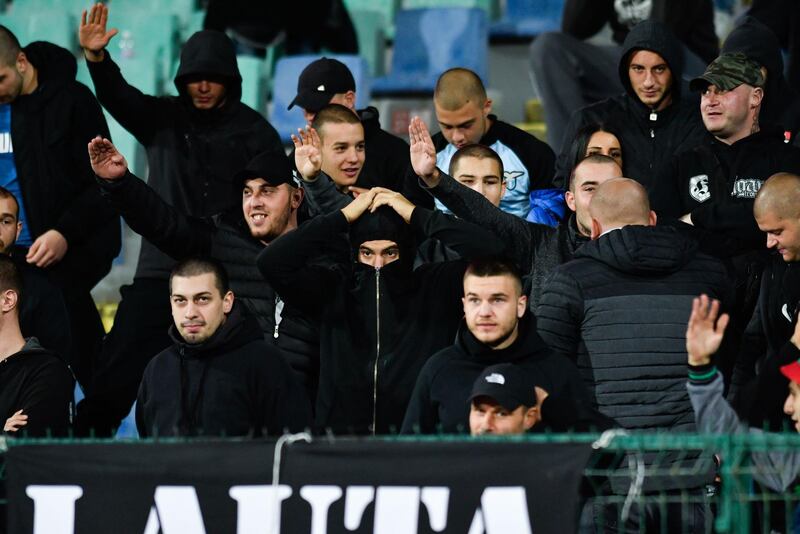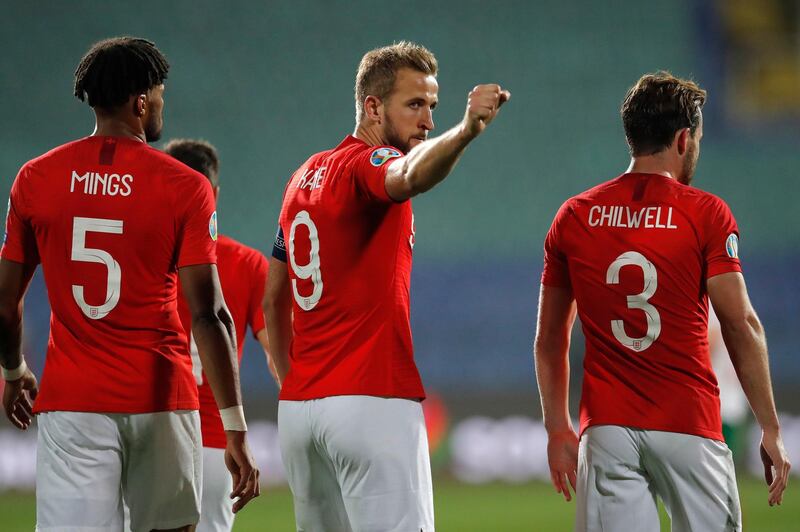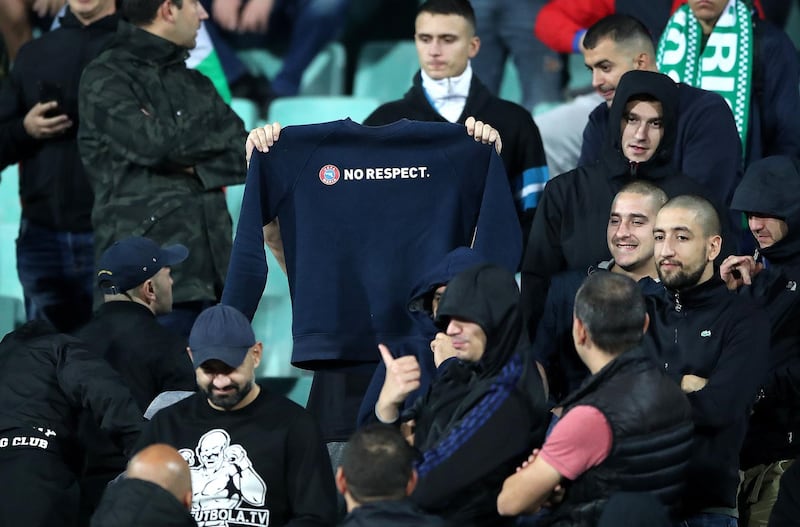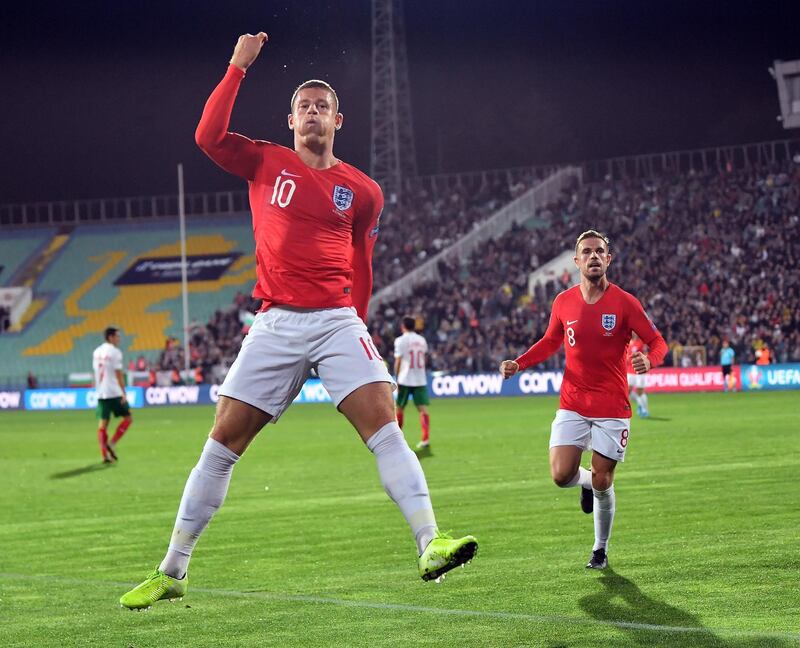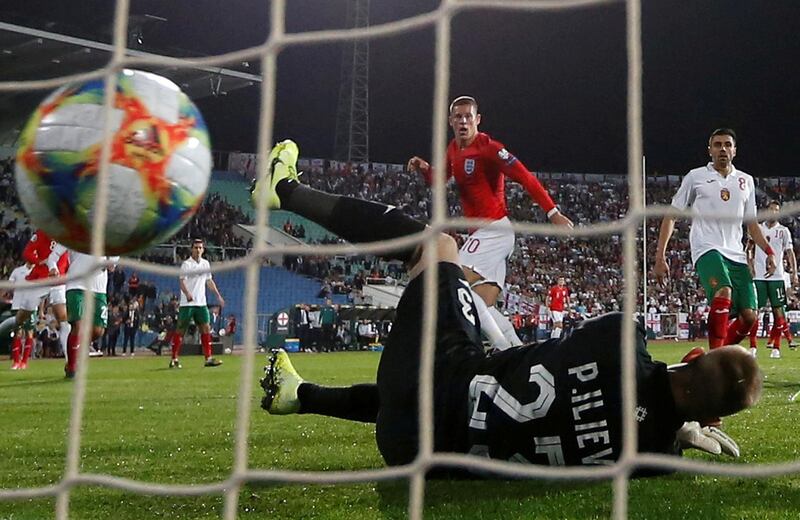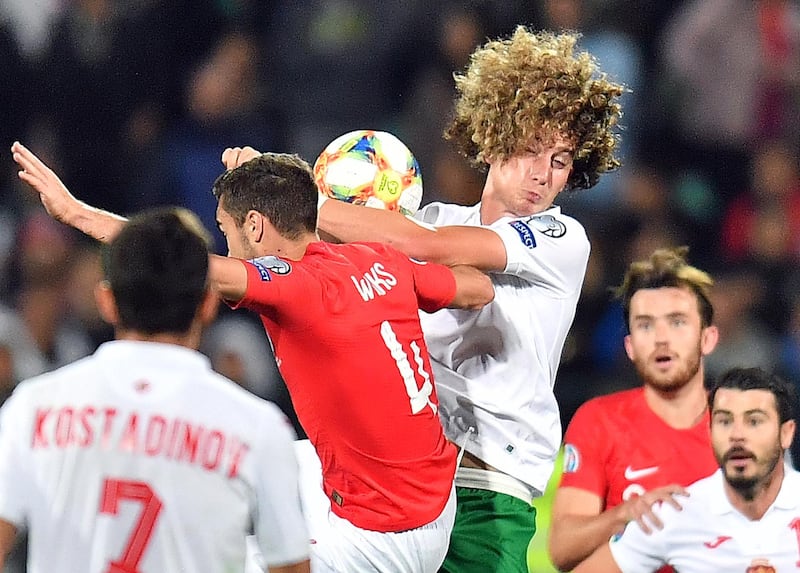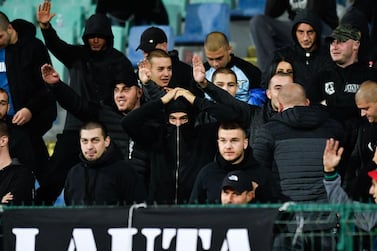“I think we’ve managed to make two statements,” said Gareth Southgate. “By winning the game but also we have raised the awareness of everyone to this situation.” Bulgaria made dual statements, too, but of the wrong kind.
Under other circumstances, a 6-0 loss, their record home defeat in 95 years of international football, would be the subject of an inquest.
Instead, it was the repeated racist abuse, beginning before kick-off in Sofia and extending into the second half after around 50 of the most vocal and visible offenders, many making Nazi salutes, had been expelled, that brought an international match to the brink of being called off and brought genuine disgrace to Bulgarian football.
It is undeniable that problems begin at the top. Borislav Mihaylov, the president of the Bulgarian Football Union, wrote to Uefa last week to complain about what he called “derogatory” comments from Southgate about the possibility of racist chanting.
Krasimir Balakov, the manager, spent Monday night in denial. Management is not just about team selection and tactics. Southgate has brought moral leadership in a way that the moral vacuum Balakov has failed miserably to do.
Mihaylov captained Bulgaria’s greatest side, the 1994 World Cup semi-finalists, while Balakov graced the midfield.
Each has tarnished his reputation and his legacy with an ostrich approach, of burying their heads in the sand, plus attempts to muddy the waters with disingenuous claims and bad-faith arguments.
Balakov said he did not hear racist chanting. His position should be untenable. Mihaylov did resign, pushed by Prime Minister Boyko Borisov who said it was "inadmissible that Bulgaria... is associated with racism and xenophobia."
But this is a bigger issue than just Mihaylov. Belatedly, perhaps, Uefa have recognised that. Their policy of paltry fines and sanctimonious statements has proved utterly ineffective.
Now three-step protocols have been put in place. For the first time, the officials were enforcing them. The crowd were on a final warning after referee Ivan Bebek halted the match twice and there was an announcement on the public address system. Bebek offered England the chance to go off the pitch; perhaps they should have accepted but, as Southgate said, a 6-0 victory was eloquent in itself.
Collectively, it marked a shift in the authorities’ approach. It is now probable that a game will be abandoned because of racist abuse and if that is desperately sad, it also shows that lesser measures have not worked. Bulgaria are a case in point.
The Vasil Levski National Stadium was deserted in parts, a punishment for racist abuse against Kosovo and Czech Republic.
As a partial stadium closure did not work, the next step is to shut the ground altogether – or, at least, to fans of the offending nation. Stiffer penalties have to be available.
Ludicrously, as they have not won a qualifier, Bulgaria could get a play-off place and a second chance to reach Euro 2020. Barring them from the play-offs would send a message.
So would the kind of points deduction that, regardless of their footballing inadequacies, would render it extremely unlikely they would reach the 2022 World Cup.
Uefa have a part to play. So do Bulgarians. Punishments can be imposed from the top down, attitudes changed from the bottom up.
Not for the first time, Raheem Sterling struck the right tone, trying to separate the racists from what, hopefully, is the majority. “Feeling sorry for Bulgaria to be represented by such idiots in their stadium,” he tweeted. It was important not to demonise an entire country.
Marcus Rashford praised the hosts’ captain Ivelin Popov, who confronted some of the home supporters at half-time and who was alone among those in a position of authority in Bulgarian football in emerging with credit.
“To stand alone and do the right thing takes courage and acts like that shouldn’t go unnoticed,” the Manchester United forward tweeted. Rashford, Sterling and the debutant Tyrone Mings showed admirable levels of maturity and restraint amid monkey chants.
Each acquitted himself well, as did their measured manager. Southgate has always acknowledged that England has its own problem, and not merely a historic one.
The national team’s travelling fans have a range of offensive chants. There has been an increase in racist abuse, particularly on social media.
Brexit, like Trumpism, has brought more overt bigotry. A political climate where it is ever easier to demonise foreigners with simplistic, vitriolic rhetoric has led to a rise in the wrong forms of nationalism. But if international football is always susceptible to such forces, it is incumbent on both the governing bodies and those within their own country to show the racists they are the pariahs.
